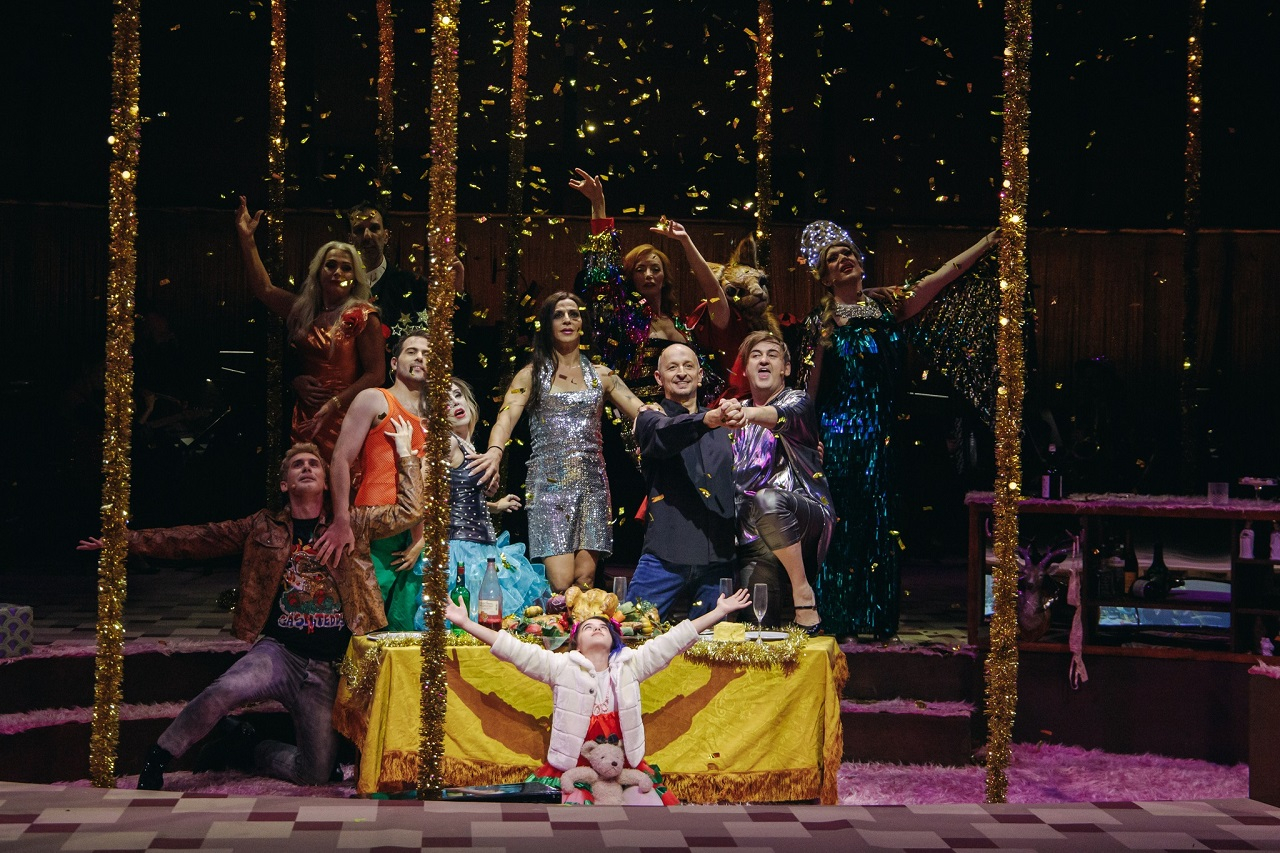Panos H. Koutras' stunning, multi-award-winning film Strella (2009), a milestone in modern Greek cinema, becomes a chamber opera commissioned by the Greek National Opera from composer Michalis Paraskakis. An emblematic film about the visibility of trans people and the LGTBQ+ community in Greece and abroad inspires for the first time a Greek operatic work.
The new chamber opera Strella with a libretto by Alexandra K* and conducted by Konstantinos Terzakis, returns, through the fresh subversive eye of sought-after theatre director George Koutlis, to the GNO Alternative Stage at the SNFCC. The roles of Strella, Mary and Wilma are performed respectively by the transgender artists Letta Kappa, Ioanna Zam-Petrou and Victoria Tsitouridou-Maya, returning to the operatic stage.
The opera treats the meeting between Yorgos, a 48-year-old man newly released from prison, and Strella, a young trans sex worker who idolises Maria Callas. The future seems open for both of them for the first time after a very long time. However, as Yorgos' accounts with the past are far from closed, his history comes back to haunt him. Together with Strella, they must find a way to redemption.
The cinematic story of Strella, as unfolded in Panos H. Koutras and Panagiotis Evangelidis' script, seems to have all the marks of a realist music drama, as it leans upon Ancient Greek tragedy with direct allusions to the myth of Oedipus and in terms of operatic verismo.
Thirteen years later, the film's subject remains as topical as it was in the time it was first released. In contemporary reality, where boldness and truth are absolutely necessary, the film's characters, and subsequently those of the opera too, are not treated as caricatures but as persons who fall in love, love and experience pain.













